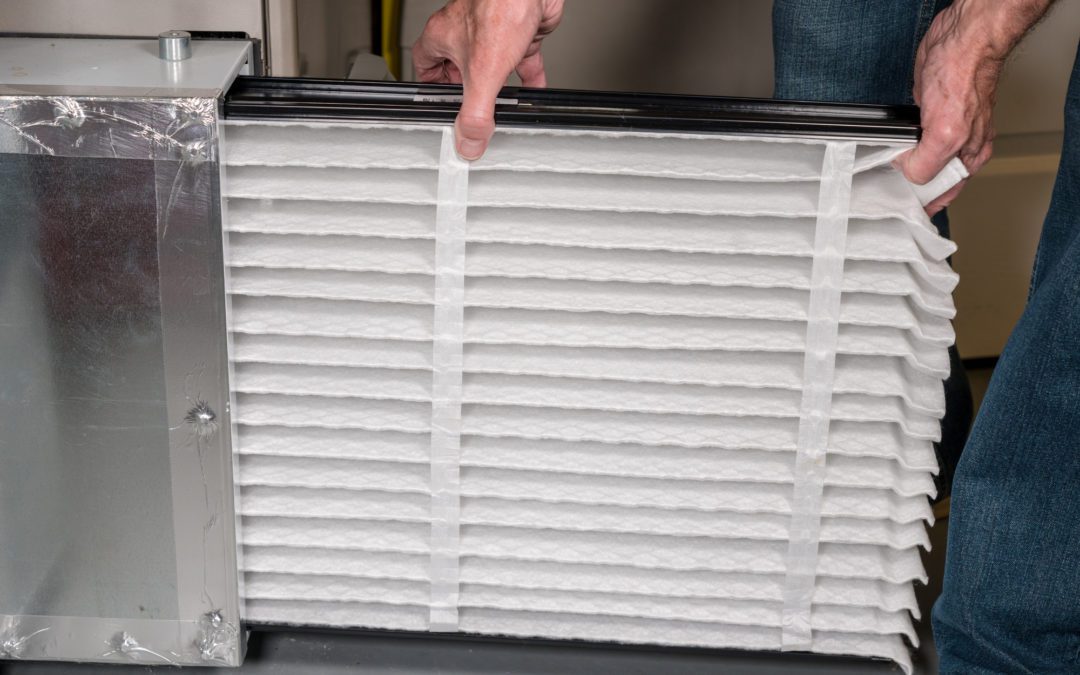Is there a difference in air quality when you replace your air filter?
Regular replacement of air filters on your HVAC system will make a difference in the air quality in your home. People install HVAC systems in their homes to regulate the temperature practically and effectively inside the house or building, but this is hardly the only practical functionality of the system.
An HVAC system exists primarily to eliminate the effect of outdoor temperature on the temperature indoors. To do this, it warms – or cools – air inside the property before circulating it into the building. To be effective, it needs a steady supply of fresh air entering the building; otherwise, it just keeps recirculating the same air repeatedly.
One of the main risk factors associated with a system like this is air pollution. Simply keeping a closed-loop and continually recirculating the air may be first prize in terms of effective temperature control. Still, the carbon dioxide levels we breathe out will eventually increase, resulting in insufficient air circulation.
Carbon dioxide is not our only problem when it comes to indoor air quality, though. Human activity causes different kinds of air pollution that needs to be effectively trapped for clean air to continue circulating through the home. This is where air filters come into play. HVAC systems are equipped with air filters that aid in trapping pollutants such as dust, pollen, and more, preventing them from entering the home.
How Changing Air Filters Make a Difference in Air Quality
The vast majority of Americans live in or proximity to large cities, where they come in continuous contact with air pollution emanating from factories, vehicle emissions, and other activities. Studies have shown that many of these air pollutants end up in homes and buildings as entering the building is easy enough, but a lack of adequate circulation can lead to a build-up of air pollutants in houses and buildings.
- Air filters trap particles in the air in homes, stopping them from being recirculated through the house. Pollutant particles can include dust, pollen, dirt and other impurities which are so small that they are not visible to the naked eye. While mechanical filters commonly used in HVAC systems are highly effective at trapping particles and pollutants, they do not trap gasses.
- HEPA filters, used in all HVAC systems installed by reputed HVAC companies, are a type of high-efficiency filter that effectively traps dust and pollen as well as much smaller particles such as moisture, some bacteria, some virus, aerosols, and other microorganisms.
- Air filters have a predetermined lifespan and need to be changed regularly for them to be effective continually. This will result in the effective removal of dirt, dust, pollen and other pollutant particles in the air, and thus better quality circulated air inside the property.
To What Extent Does Regular Replacement of Air Filters Make a Difference in Air Quality?
The difference in air quality in homes where filters are regularly changed can be significant. Though not necessarily immediately noticeable by most people, one could start to experience some symptoms related to dust, pollen and other particles floating around the air within as little as an hour.
- Regularly changing your air filters and having your ducts professionally cleaned at least once per year will result in noticeably less dust and other particles in the air. Common symptoms associated with dirty, ineffective air filters include a blocked nose, sneezing, coughing, and headaches, even in those of us not sensitive to pollen.
- People with allergic reactions to dust and pollen will have noticeably fewer reactions to allergens in a space where air filters are regularly cleaned or changed, as the filters more effectively trap common allergens.
- HEPA filters remove up to 99.97% of particles sized to 0.3 microns from the air. These include many common bacteria and viruses, meaning that the chances of catching an airborne contagious disease like the flu simply by being in the same house as an infected person are significantly reduced.
Benefits, Besides Difference in Air Quality, or Regularly Changing Air Filters
Numerous studies have concluded that indoor air quality tends to be much worse than outdoor air quality in general. While it is relatively easy for pollutants and particles to enter the home, less than ideal ventilation and filtration in most cases make it difficult to remove particles from the building. Effective filtering will result in cleaner air, but there are more benefits to consider.
- In addition to effectiveness, the most prominent concern with HVAC systems is cost-effectiveness. For example, dirty and clogged air filters mean your HVAC system expends more energy in pushing air through the filters and vents, causing higher utility costs and more frequent expenses in terms of repair and maintenance of your HVAC system.
- Regularly cleaning or changing air filters, combined with regular maintenance, will result in a longer lifespan of your HVAC system.
- Attain optimal temperature control. With less energy expended in filtering, your HVAC system will be more effective at maintaining the ideal temperature in the house.
Keeping your HVAC system in perfect working order is easy. Simply ensure that tasks that guarantee its effectiveness, like changing air filters and having ducts regularly cleaned, is carried out as and when necessary. Not only will it result in more effective operation in keeping your house warm or cool, but it will also make a difference in air quality in the home.

